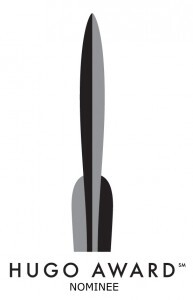My votes for the 2023 Hugo Best Novelette

This year the Worldcon will be held in Chengdu, China, and the 2023 Hugo Awards, the Lodestar Award, and the Astounding Award will be presented on Saturday evening, October 21, at a formal ceremony at the Chengdu Worldcon.
Although I won’t be attending in person, I’m a Worldcon member and get to vote for the awards. Members also make the nominations, and the works or individuals with the most nominations become the finalists.
The voting is by ranked choice, and here’s my ranking — of course, your opinion may differ:
6. “The Space-Time Painter” by Hai Ya (Galaxy’s Edge, April 2022) – Alas, no translation from Chinese is available. Given the quality of the Chinese works in the short story category, I was looking forward to reading this.
5. “We Built This City” by Marie Vibbert (Clarkesworld, June 2022) – Workers maintaining the dome over a city on Venus fight for their right to do their job in reasonable working conditions. Science fiction is always about the present.
4. “The Difference Between Love and Time” by Catherynne M. Valente (Someone in Time: Tales of Time-Crossed Romance, Solaris) – An extended metaphor eventually leads to an understanding of the difference between love and time, stylishly told with an uplifting ending.
3. “A Dream of Electric Mothers”, by Wole Talabi (Africa Risen: A New Era of Speculative Fiction, Tordotcom) – Technology manages to make tradition come true: ancestors can be consulted. But should their messages be trusted? Time and place, character and theme mesh to bring the answer.
2. “If You Find Yourself Speaking to God, Address God with the Informal You” by John Chu (Uncanny Magazine, July-August 2022) – Can you be friends with a superhero? Can a superhero solve one of today’s ugliest problems? John Chu explores these questions with a tender, breakable heart, and emotional honesty suffuses every sentence.
1. “Murder By Pixel: Crime and Responsibility in the Digital Darkness” by S.L. Huang (Clarkesworld, December 2022) – Can an AI unintentionally become a killer? Using the format of a magazine article, this story has the creepy feel of our present-day reality rather than science fiction. It even has footnotes.



